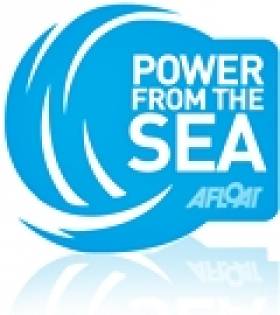Displaying items by tag: Wicklow Bay
Bank Holiday Rescue of Kayaker for Wicklow RNLI
Wicklow RNLI Inshore lifeboat crew brought a man to safety after his kayak capsized in choppy waters off Wicklow Head yesterday afternoon (Monday 25 October). The kayaker was spotted by members of the public, who contacted the Coast Guard.
The Inshore lifeboat, under the command of helm Alan Goucher and two volunteer crew launched at 4:25 pm. They arrived on scene four minutes later and located the casualty on the cliff under Wicklow Head Lighthouse, weather conditions in the area at the time were wind south-westerly force five with rough sea.
The kayaker had left Wicklow harbour earlier in the afternoon and intended to travel south along the coast, but due to tidal conditions and rough sea at Wicklow Head the kayak capsized and he was thrown into the water. The man managed to swim towards the cliff and climb five feet above the waterline, to wait until help arrived.
The casualty was transferred onto the lifeboat and landed safely ashore.
Speaking after the call out Wicklow RNLI Press Officer, Tommy Dover said: ‘The casualty was fortunate to have been spotted by walkers at Wicklow Head this afternoon, he was shaken after his ordeal but required no medical attention. We urge anyone going afloat to always carry a means for calling for help and if they get into difficulty dial 999 or 112 and ask for the Coast Guard.’
Crew List: Helm Alan Goucher, Lisa ‘O Leary and John Stapleton.
#POWER FROM THE SEA - This morning the wind farm turbine installation vessel Sea Energy, departed Wicklow Bay having spent over a fortnight based in Wicklow Port, where her Danish crew celebrated Christmas Day, writes Jehan Ashmore.
The Esbjerg registered vessel operated by A2 Sea, arrived in the week before Christmas to work at Airtricity's Arklow Bank Wind Farm, but the nature of the work was based on internal operations only at the seven turbine facility, which each structure scaling to a height of over 70 metres / 240 feet.
Upon completion of her work, she returned to Wicklow where her crew spent the festive season in port with a Christmas tree complete with lights! at the bow.
She remained in the harbour into the New Year and during the recent spate of heavy weather until finally departing yesterday on Little Christmas, where she overnighted in the bay.
With four towering supporting jack-up legs each 32 metres high, this enables her to carry out offshore crane operations with greater control. In addition the vessel is raised completely above the water to gain elevation to assist mounting the pre-assembled wind-turbine components from her deck cargo.
She can work in waters of up to 24 metres and as she rests on the sea-bed this provides a more stable working platform.
Sea Energy presented a distinctive profile while in port as she 'sat' close to the Packet Quay, as her jack-up legs make mooring ropes redundant.
The quay is the main commercial quay and during this week she vacated the berth to allow regular caller Scot Isles (2001/2,595grt) which arrived with a cargo of sawn packaged timber products from Scandinavia. Owned by Scot Line, the vessel remained in the port for two days and then departed for Warrenpoint.
The Wicklow Port Company also specialise in dry-cargoes, lead, and scrap-metal as previously reported, to read more click HERE.
It is somewhat unusual for vessel movements in Wicklow to berth outside the harbour piers, as in the case with Sea Energy.
She shifted berths to the seaward side of the West Pier and again she sat with jack-legs lowered in water depths of six metres, leaving a clearance of around two metres below the keel.
Although Arklow is closer to the wind-farm than Wicklow, Sea Energy's 3,332 gross tonnes is too large to be accommodated as the port on the River Avoca has a has lower water depth.
























































